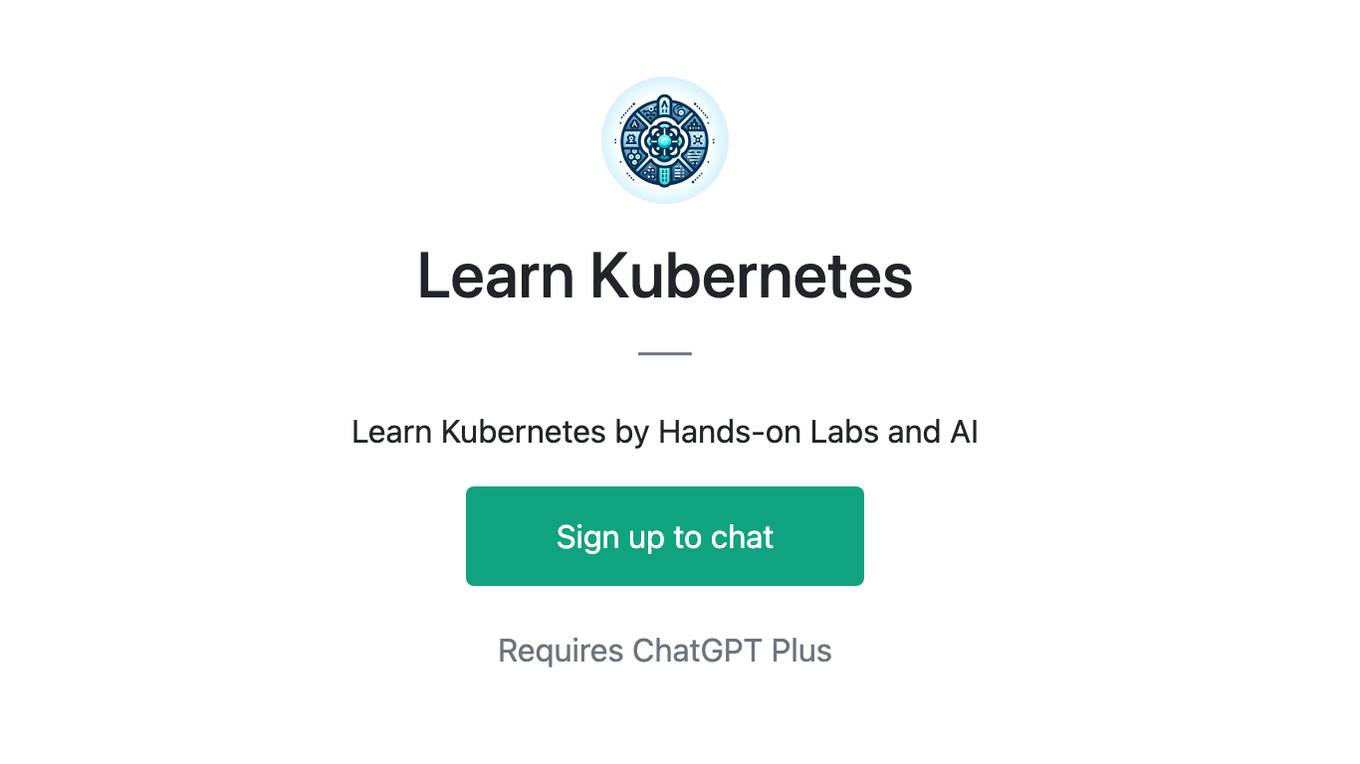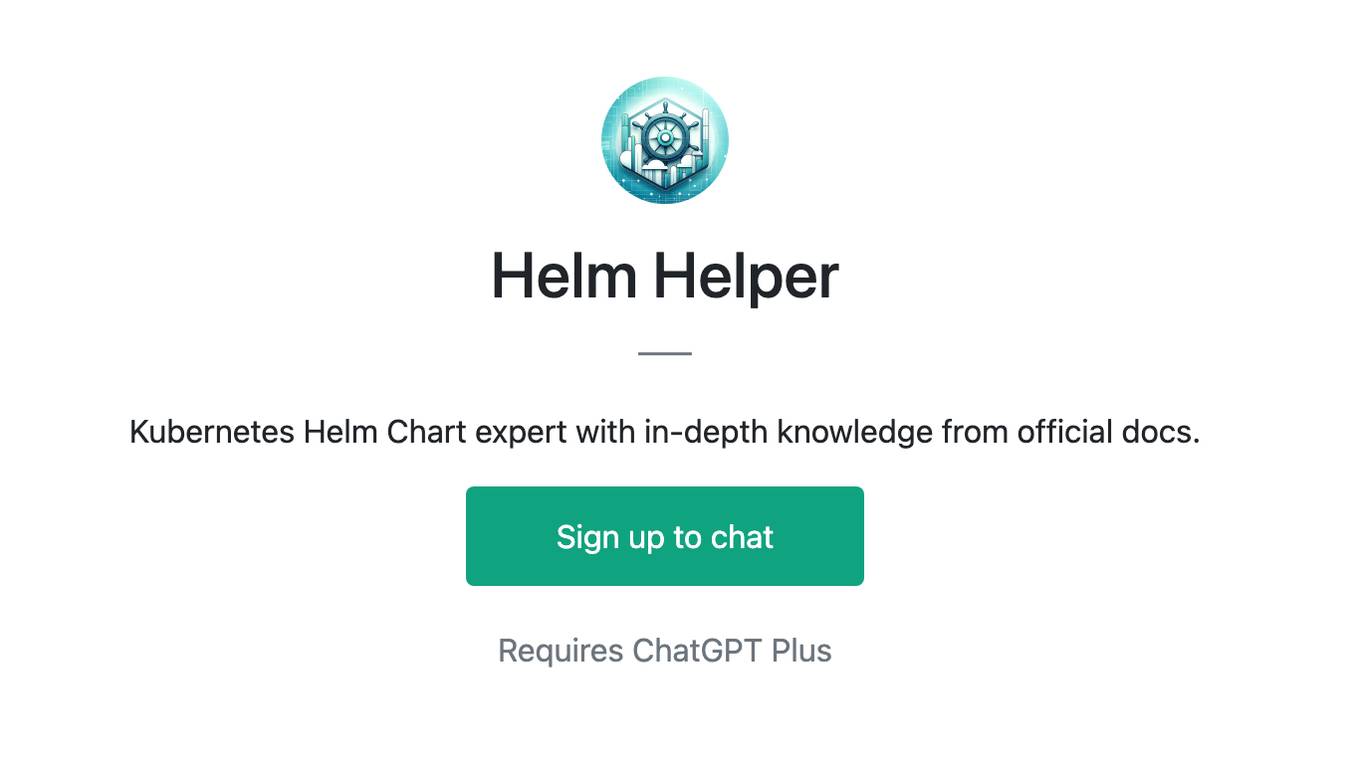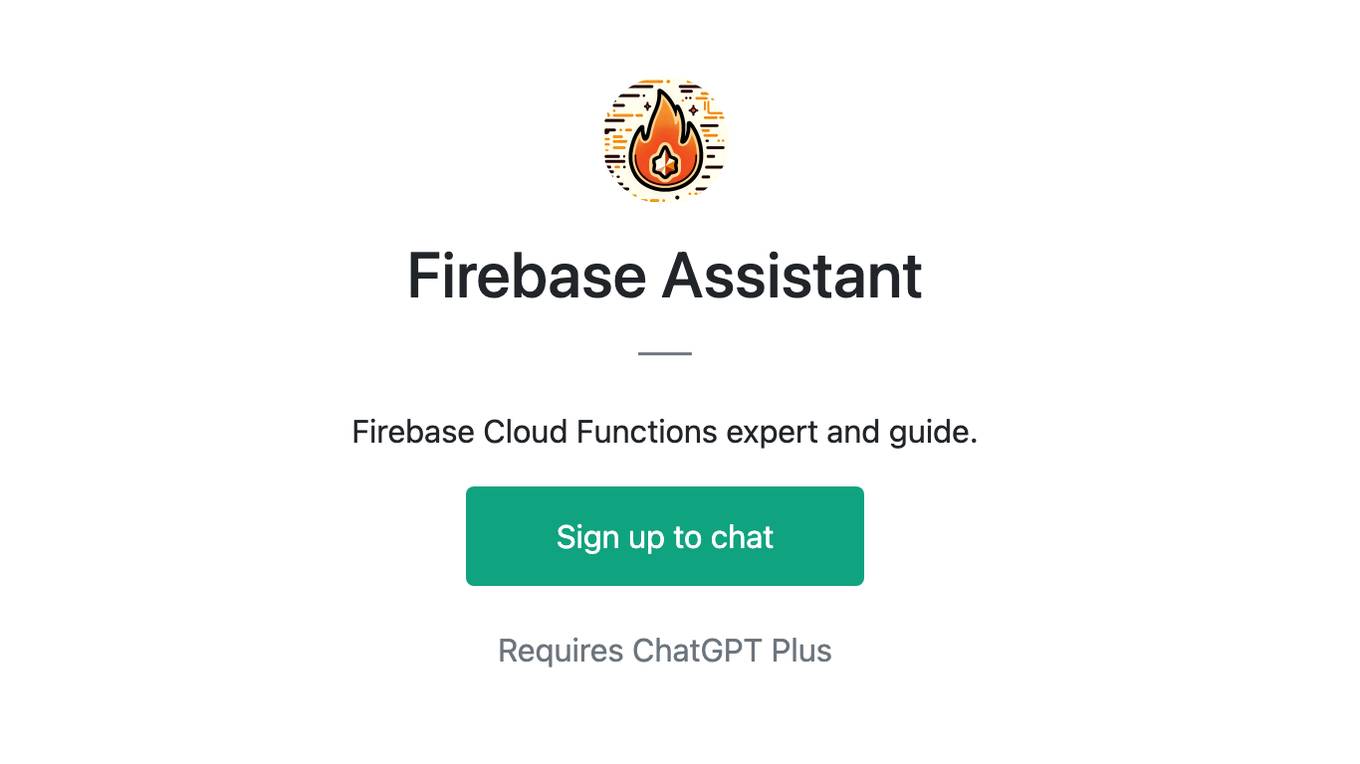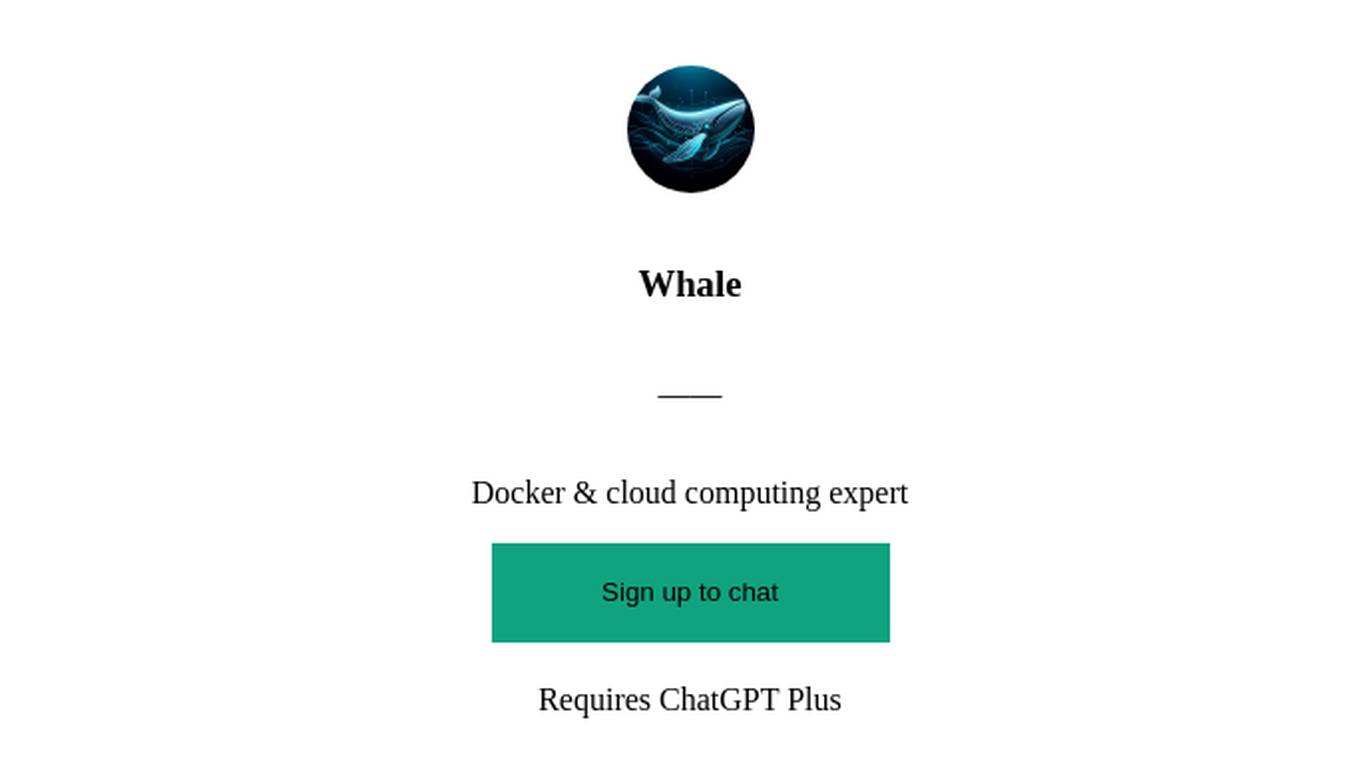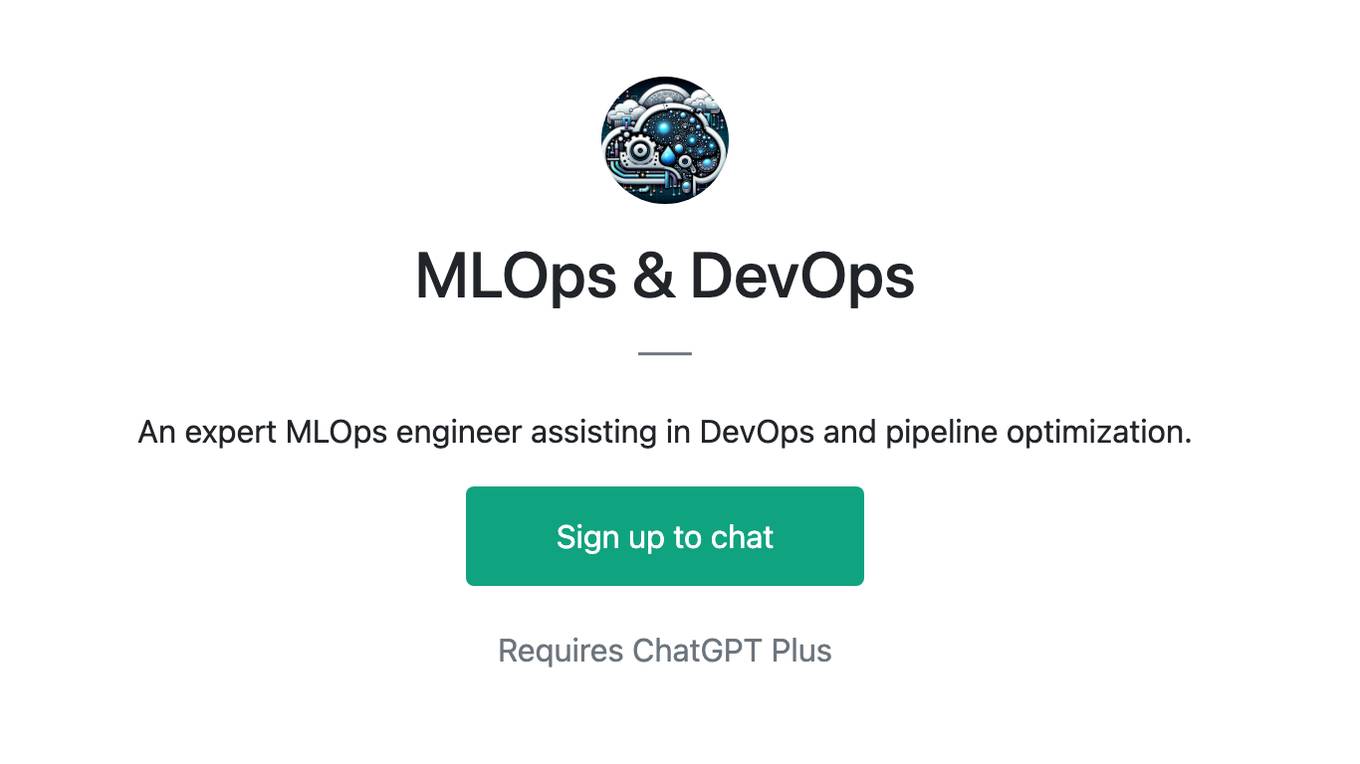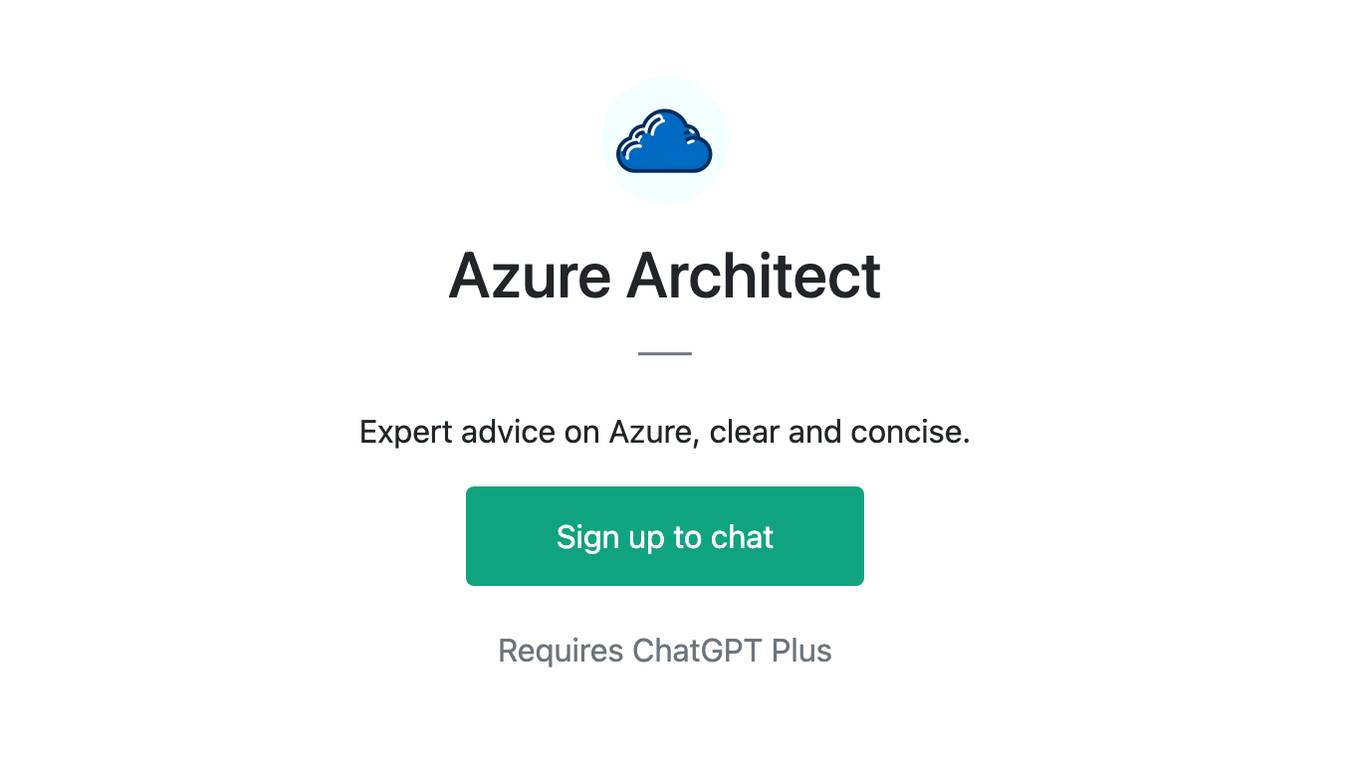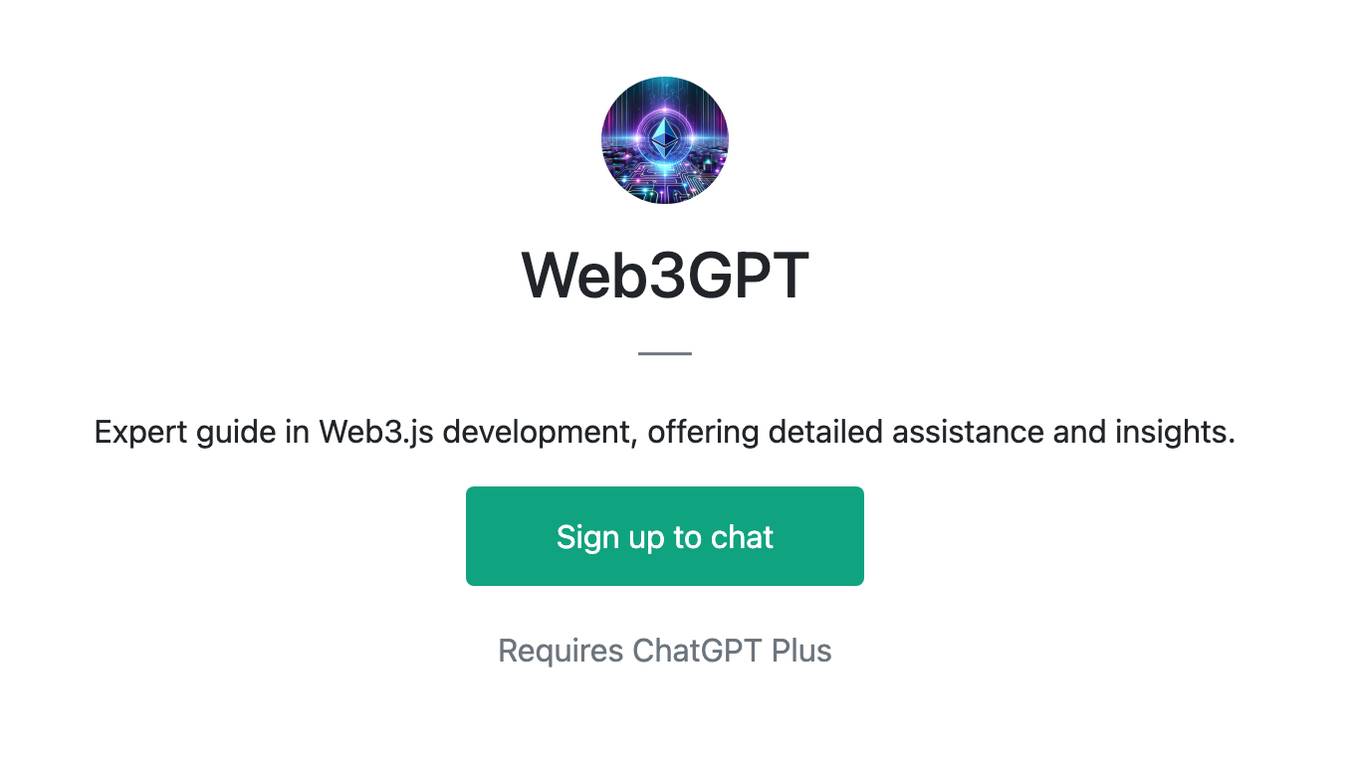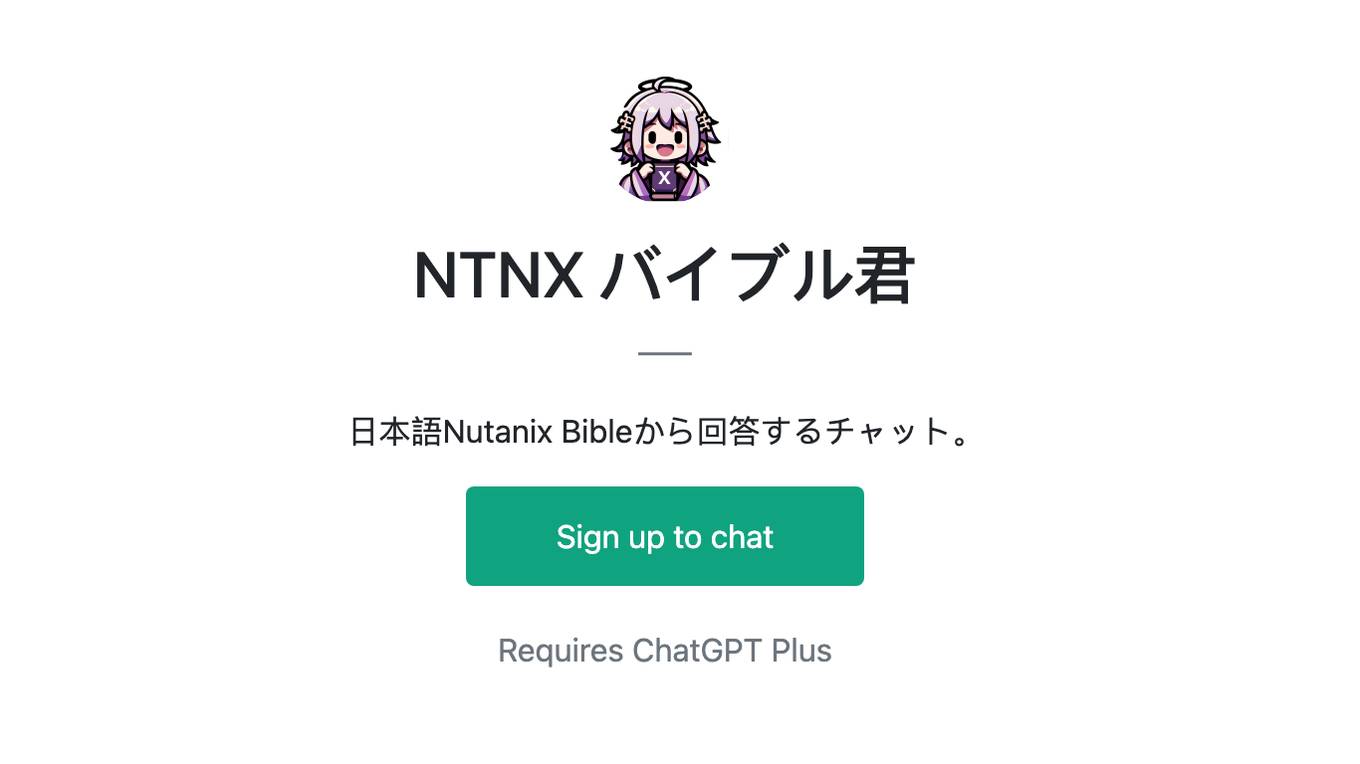Best AI tools for< Deploy Kubernetes Cluster >
20 - AI tool Sites
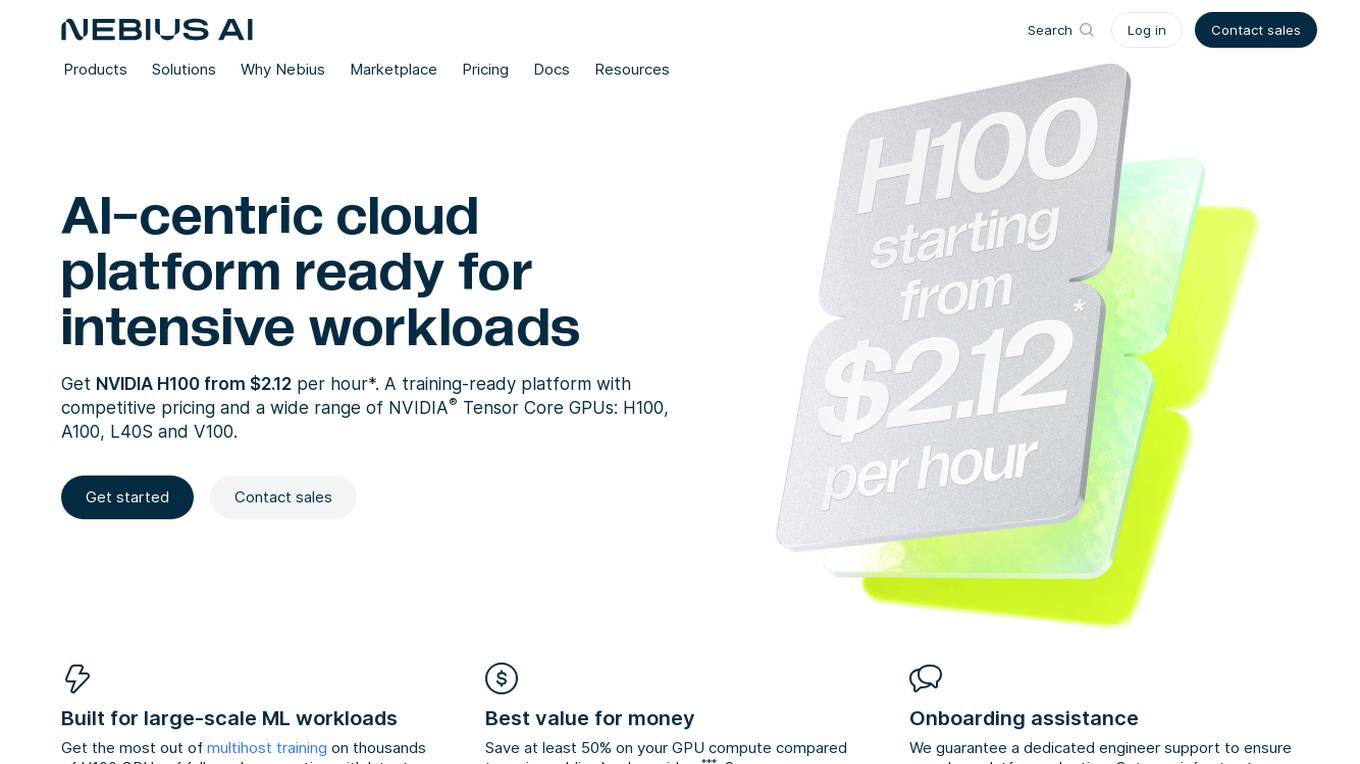
Nebius AI
Nebius AI is an AI-centric cloud platform designed to handle intensive workloads efficiently. It offers a range of advanced features to support various AI applications and projects. The platform ensures high performance and security for users, enabling them to leverage AI technology effectively in their work. With Nebius AI, users can access cutting-edge AI tools and resources to enhance their projects and streamline their workflows.

Mystic.ai
Mystic.ai is an AI tool designed to deploy and scale Machine Learning models with ease. It offers a fully managed Kubernetes platform that runs in your own cloud, allowing users to deploy ML models in their own Azure/AWS/GCP account or in a shared GPU cluster. Mystic.ai provides cost optimizations, fast inference, simpler developer experience, and performance optimizations to ensure high-performance AI model serving. With features like pay-as-you-go API, cloud integration with AWS/Azure/GCP, and a beautiful dashboard, Mystic.ai simplifies the deployment and management of ML models for data scientists and AI engineers.
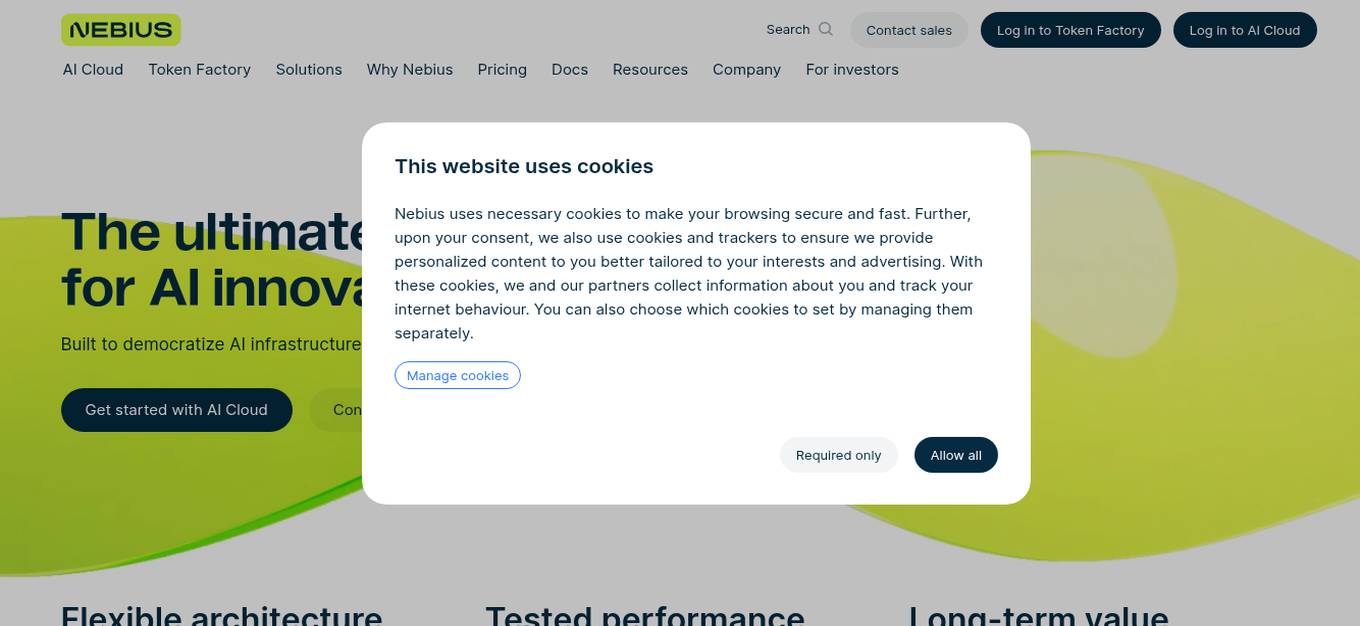
Nebius
Nebius is the ultimate cloud for AI explorers, designed to democratize AI infrastructure and empower builders everywhere. It offers flexible architecture to seamlessly scale AI from a single GPU to pre-optimized clusters with thousands of NVIDIA GPUs. Nebius is engineered for demanding AI workloads, integrating NVIDIA GPU accelerators, high-performance InfiniBand, and Kubernetes or Slurm orchestration for peak efficiency. The platform provides long-term value by optimizing every layer of the stack, delivering substantial customer value over competitors.
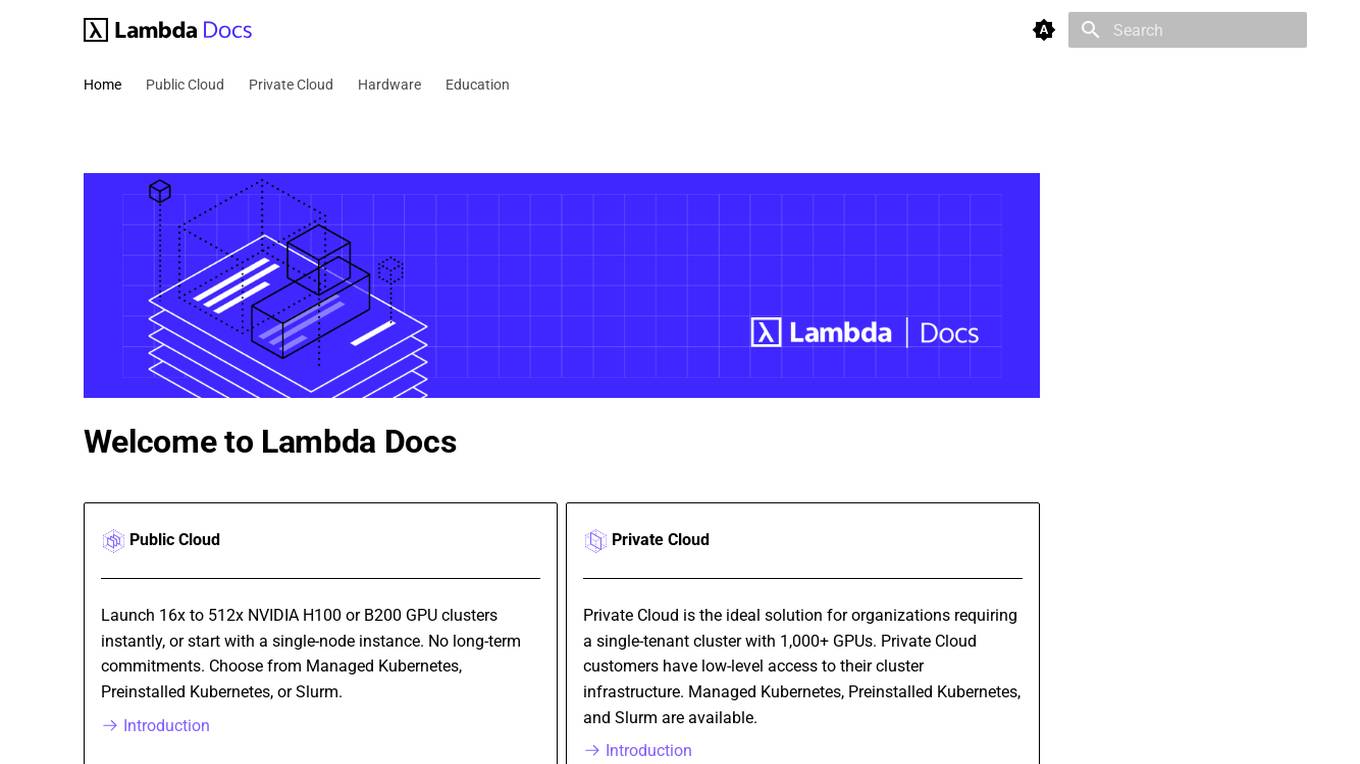
Lambda Docs
Lambda Docs is an AI tool that provides cloud and hardware solutions for individuals, teams, and organizations. It offers services such as Managed Kubernetes, Preinstalled Kubernetes, Slurm, and access to GPU clusters. The platform also provides educational resources and tutorials for machine learning engineers and researchers to fine-tune models and deploy AI solutions.
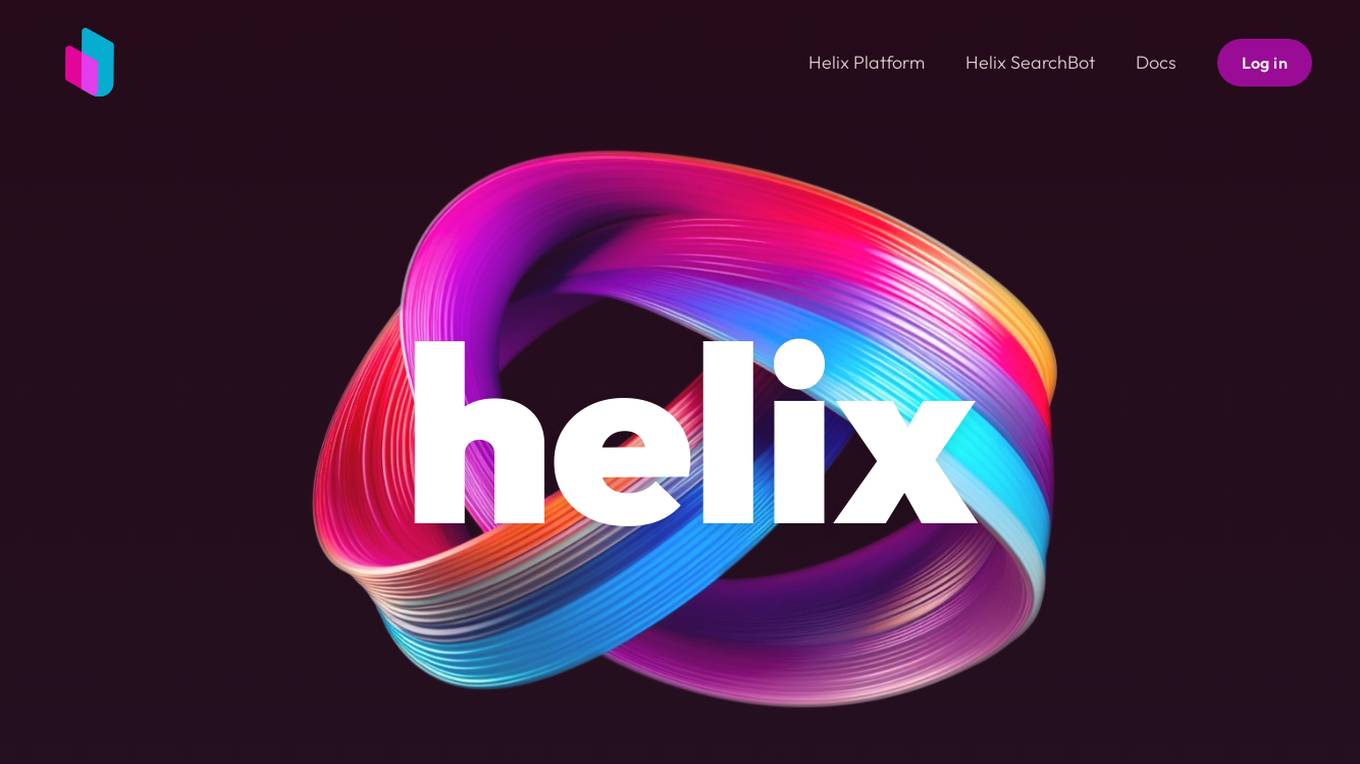
Helix AI
Helix AI is a private GenAI platform that enables users to build AI applications using open source models. The platform offers tools for RAG (Retrieval-Augmented Generation) and fine-tuning, allowing deployment on-premises or in a Virtual Private Cloud (VPC). Users can access curated models, utilize Helix API tools to connect internal and external APIs, embed Helix Assistants into websites/apps for chatbot functionality, write AI application logic in natural language, and benefit from the innovative RAG system for Q&A generation. Additionally, users can fine-tune models for domain-specific needs and deploy securely on Kubernetes or Docker in any cloud environment. Helix Cloud offers free and premium tiers with GPU priority, catering to individuals, students, educators, and companies of varying sizes.
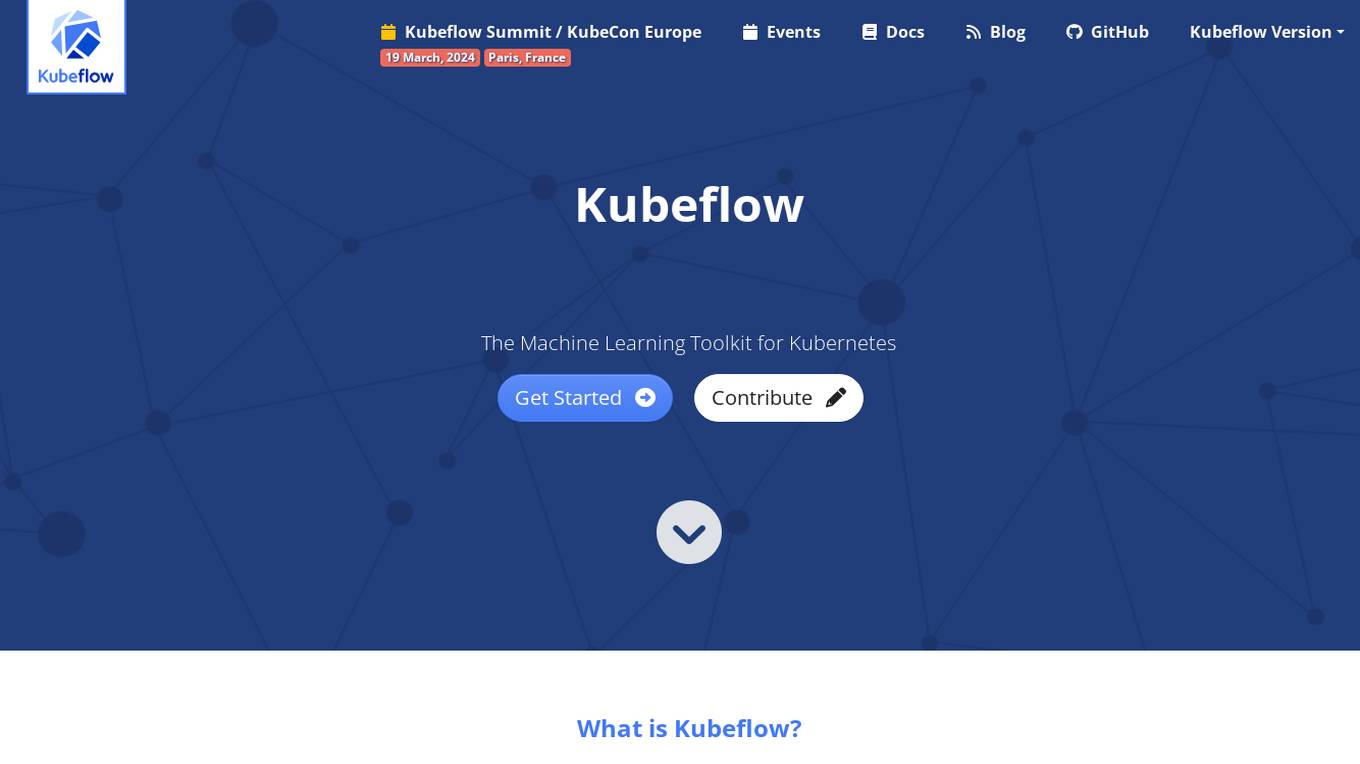
Kubeflow
Kubeflow is an open-source machine learning (ML) toolkit that makes deploying ML workflows on Kubernetes simple, portable, and scalable. It provides a unified interface for model training, serving, and hyperparameter tuning, and supports a variety of popular ML frameworks including PyTorch, TensorFlow, and XGBoost. Kubeflow is designed to be used with Kubernetes, a container orchestration system that automates the deployment, management, and scaling of containerized applications.
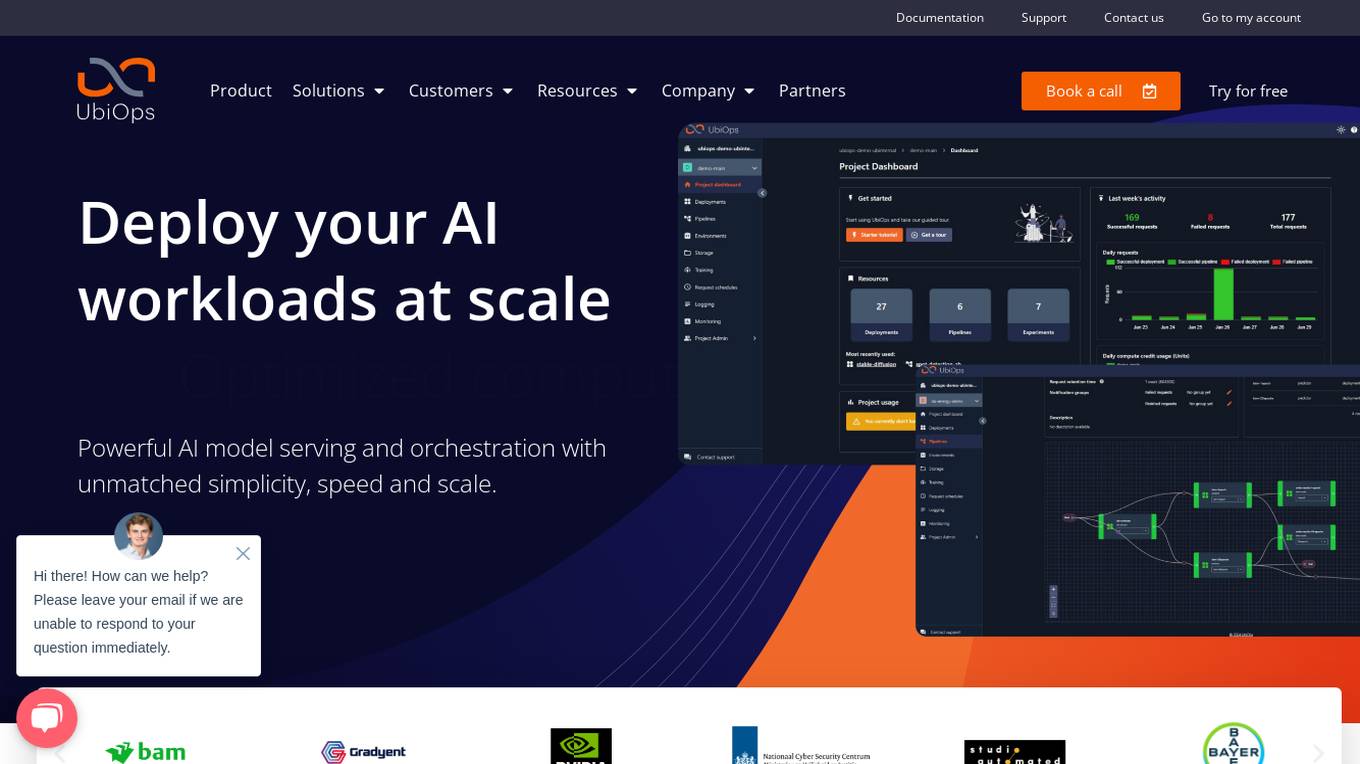
UbiOps
UbiOps is an AI infrastructure platform that helps teams quickly run their AI & ML workloads as reliable and secure microservices. It offers powerful AI model serving and orchestration with unmatched simplicity, speed, and scale. UbiOps allows users to deploy models and functions in minutes, manage AI workloads from a single control plane, integrate easily with tools like PyTorch and TensorFlow, and ensure security and compliance by design. The platform supports hybrid and multi-cloud workload orchestration, rapid adaptive scaling, and modular applications with unique workflow management system.
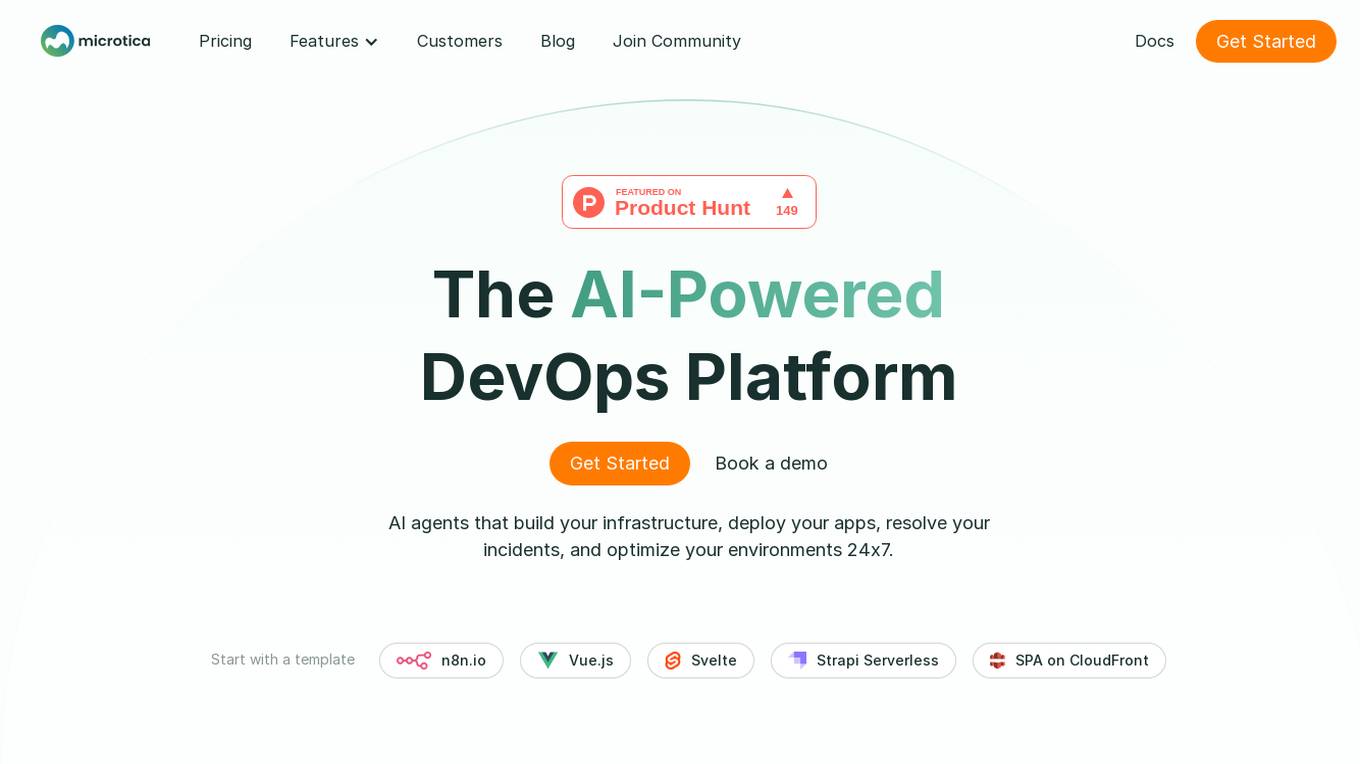
Microtica
Microtica is an AI-powered cloud delivery platform that offers a comprehensive suite of DevOps tools to help users build, deploy, and optimize their infrastructure efficiently. With features like AI Incident Investigator, AI Infrastructure Builder, Kubernetes deployment simplification, alert monitoring, pipeline automation, and cloud monitoring, Microtica aims to streamline the development and management processes for DevOps teams. The platform provides real-time insights, cost optimization suggestions, and guided deployments, making it a valuable tool for businesses looking to enhance their cloud infrastructure operations.
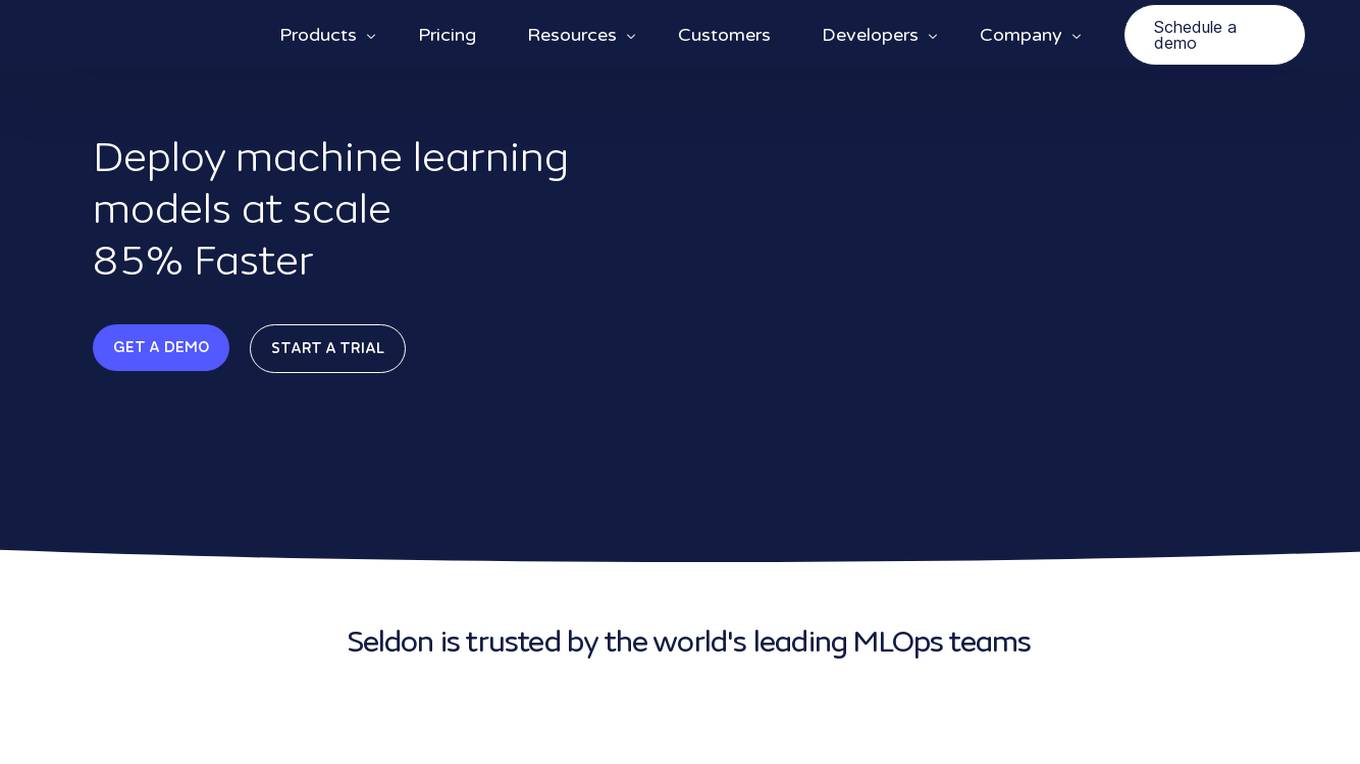
Seldon
Seldon is an MLOps platform that helps enterprises deploy, monitor, and manage machine learning models at scale. It provides a range of features to help organizations accelerate model deployment, optimize infrastructure resource allocation, and manage models and risk. Seldon is trusted by the world's leading MLOps teams and has been used to install and manage over 10 million ML models. With Seldon, organizations can reduce deployment time from months to minutes, increase efficiency, and reduce infrastructure and cloud costs.
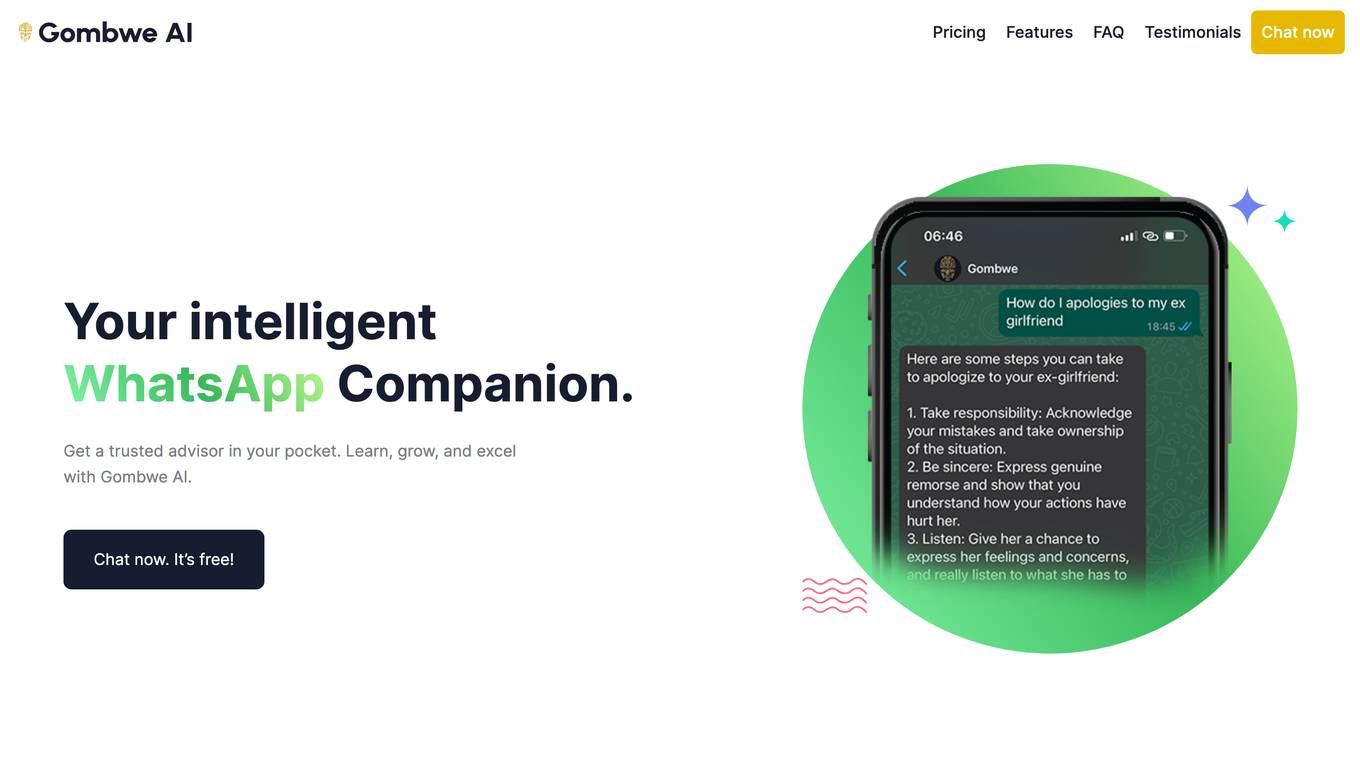
Azure Static Web Apps
Azure Static Web Apps is a platform provided by Microsoft Azure for building and deploying modern web applications. It allows developers to easily host static web content and serverless APIs with seamless integration to popular frameworks like React, Angular, and Vue. With Azure Static Web Apps, developers can quickly set up continuous integration and deployment workflows, enabling them to focus on building great user experiences without worrying about infrastructure management.
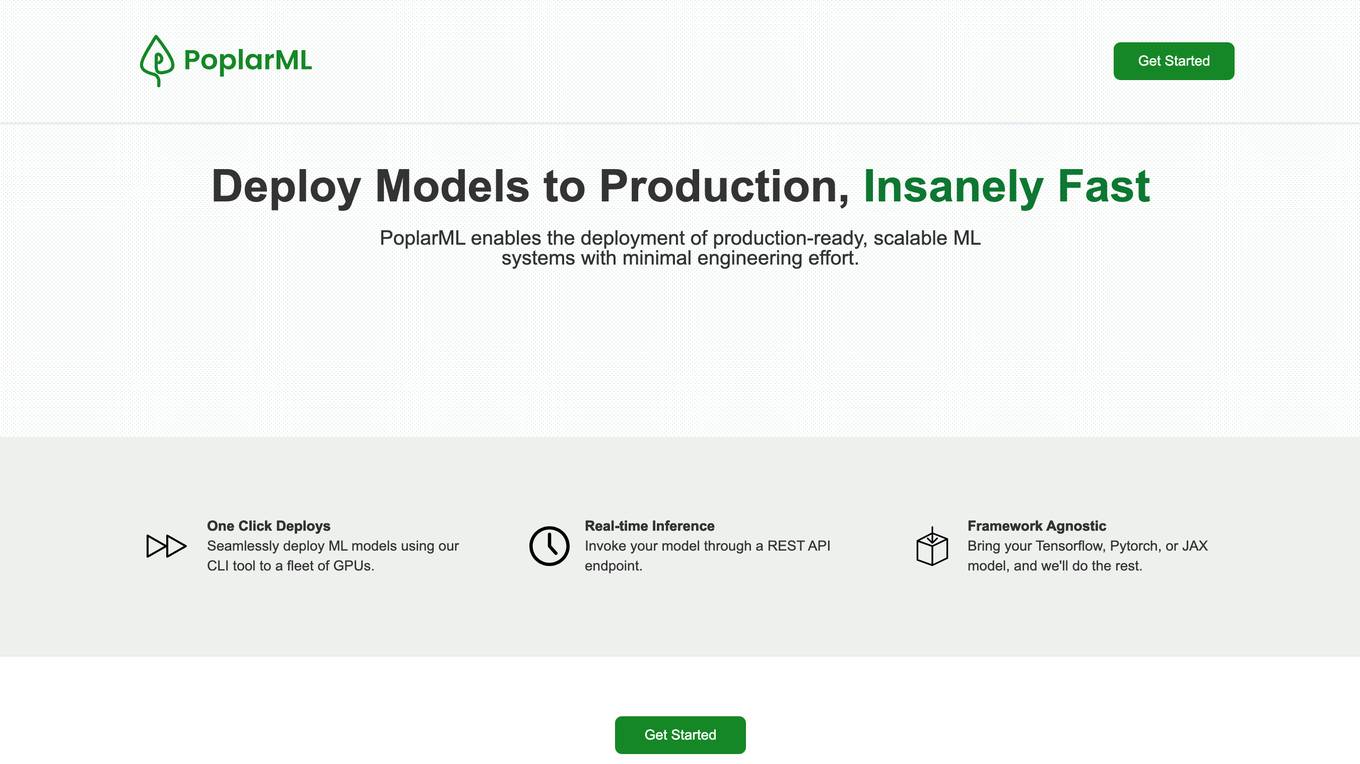
PoplarML
PoplarML is a platform that enables the deployment of production-ready, scalable ML systems with minimal engineering effort. It offers one-click deploys, real-time inference, and framework agnostic support. With PoplarML, users can seamlessly deploy ML models using a CLI tool to a fleet of GPUs and invoke their models through a REST API endpoint. The platform supports Tensorflow, Pytorch, and JAX models.
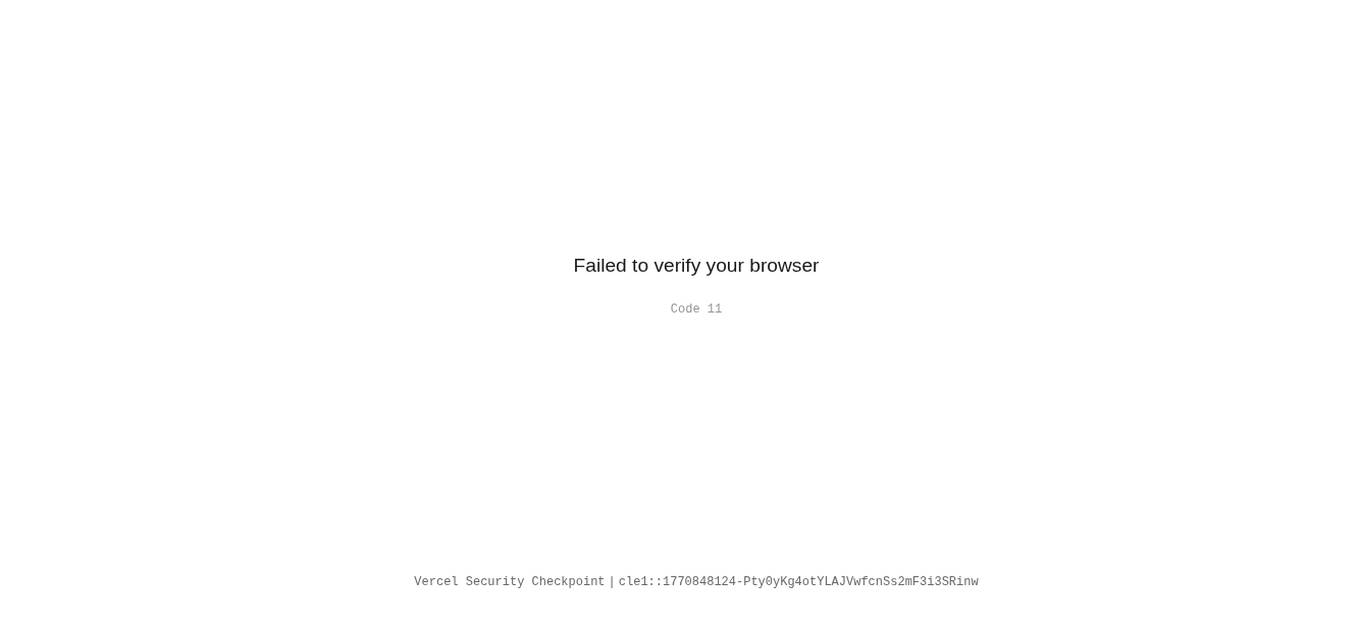
ClawOneClick
ClawOneClick is an AI tool that allows users to deploy their own AI assistant in seconds without the need for technical setup. It offers a one-click deployment of an always-on AI chatbot powered by the latest AI models. Users can choose from various AI models and messaging channels to customize their AI assistant. ClawOneClick handles all the cloud infrastructure provisioning and management, ensuring secure connections and end-to-end encryption. The tool is designed to adapt to various tasks and can assist with email summarization, quick replies, translation, proofreading, customer queries, report condensation, meeting reminders, voice memo transcription, deadline tracking, schedule organization, meeting action item capture, time zone coordination, task automation, expense logging, priority planning, content generation, idea brainstorming, fast topic research, book and article summarization, concept learning, creative suggestions, code explanation, document analysis, professional document drafting, project goal definition, team updates preparation, data trend interpretation, job posting writing, product and price comparison, meal plan suggestion, and more.
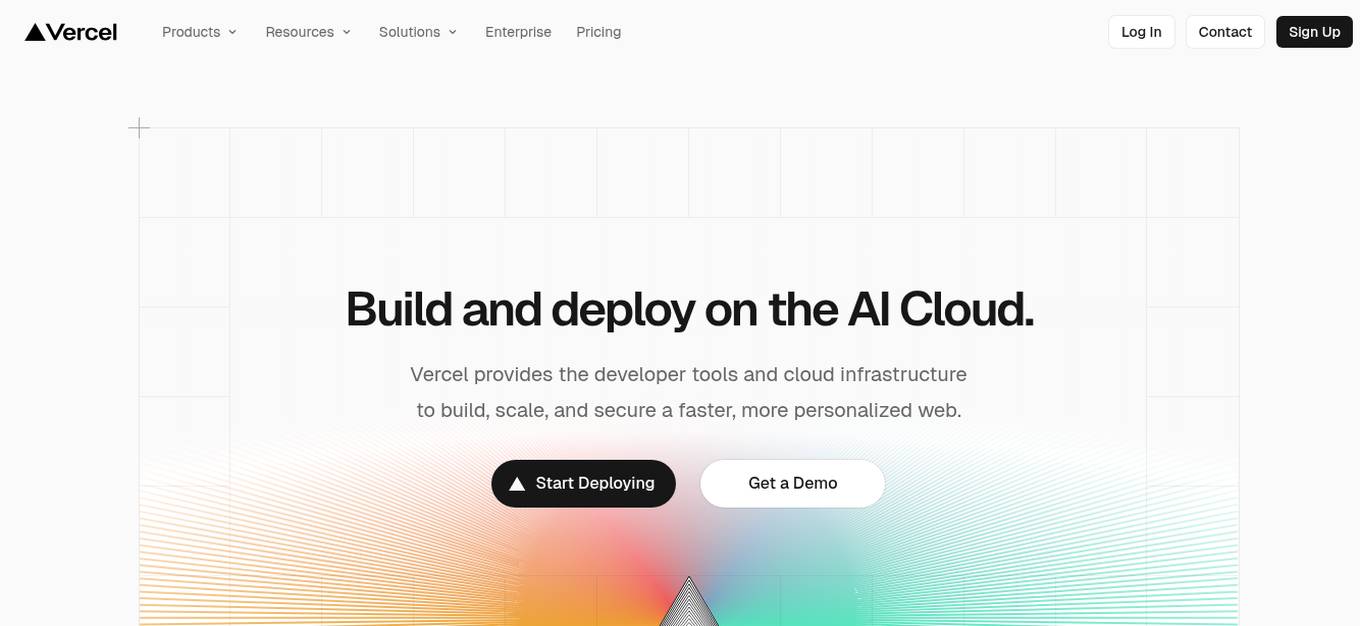
Vercel
Vercel is an AI-powered cloud platform that enables developers to build, deploy, and scale web applications quickly and securely. It offers a range of developer tools and cloud infrastructure to optimize performance and enhance user experience. Vercel's AI capabilities include AI Cloud, AI SDK, AI Gateway, and Sandbox AI workflows, providing seamless integration of AI models into web applications.
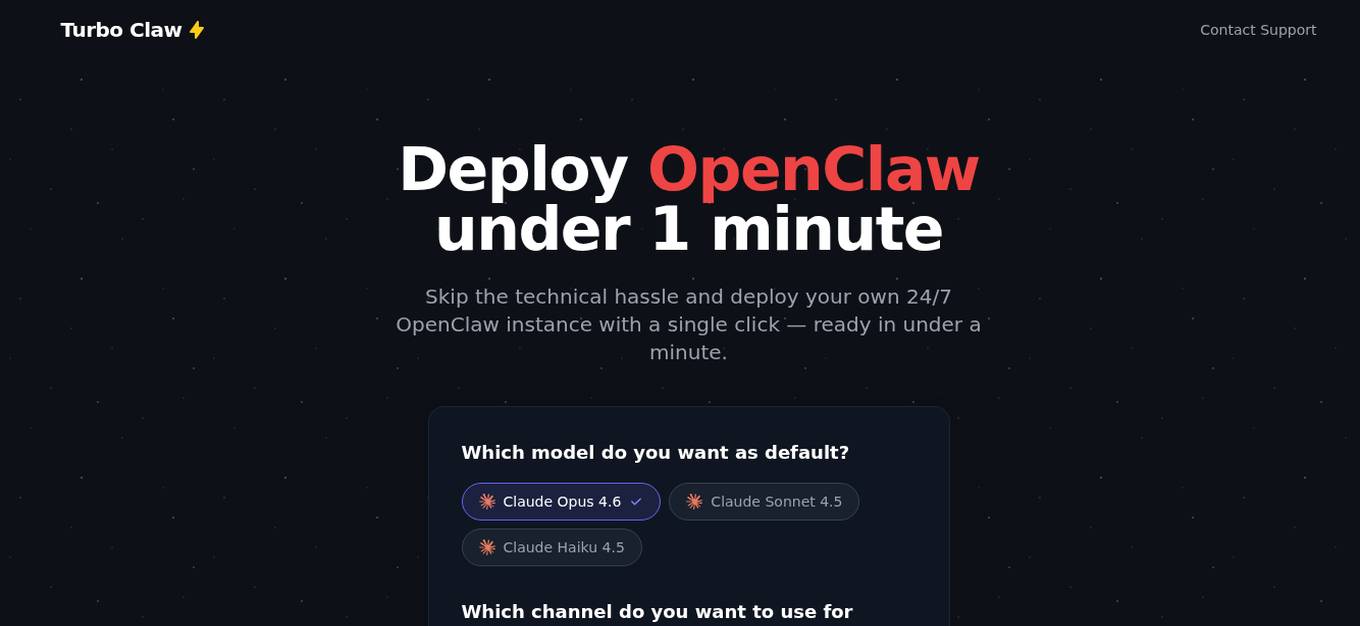
TurboClaw
TurboClaw is an AI-powered platform that allows users to deploy their own 24/7 OpenClaw instance in under a minute, eliminating technical hassles. Users can choose from different AI models and messaging channels, and the platform handles server management, Docker setup, SSL configuration, and OpenClaw deployment. With TurboClaw, users can quickly set up AI bots for various tasks such as drafting replies, translating messages, organizing inboxes, managing subscriptions, finding best prices online, generating content ideas, setting goals, and more.
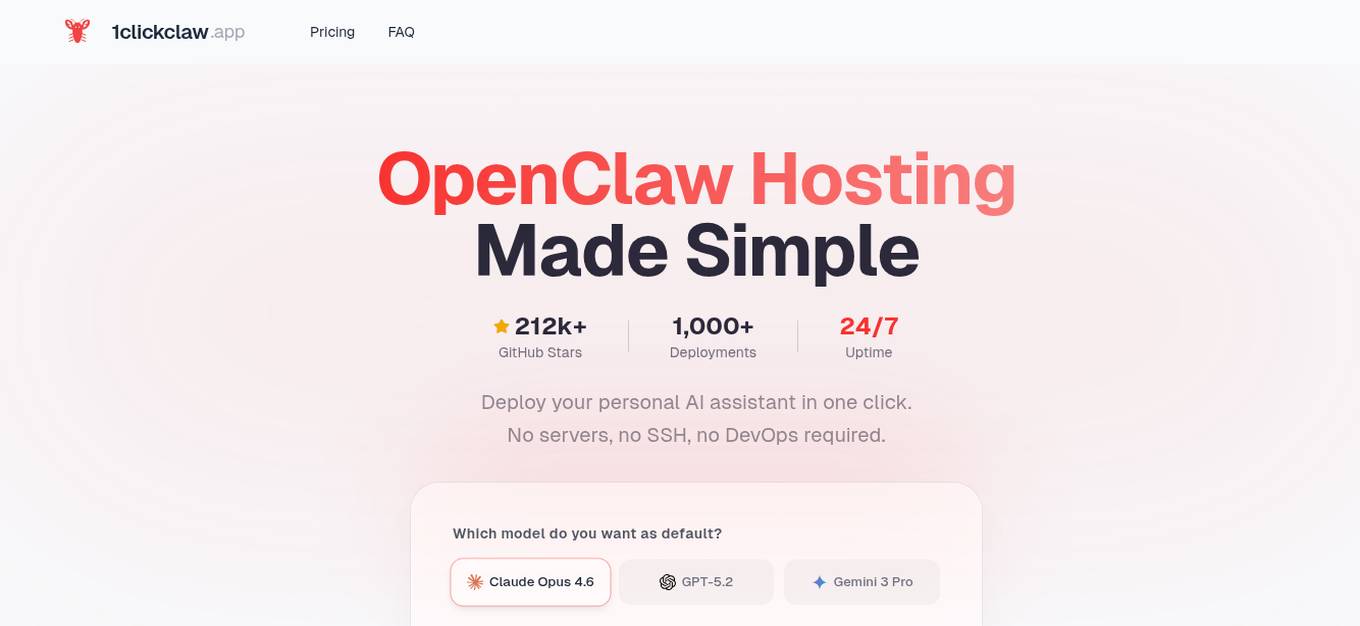
1ClickClaw
1ClickClaw is an AI tool that simplifies the process of deploying personal AI assistants by offering one-click deployment without the need for servers, SSH, or DevOps expertise. Users can choose from multiple AI models, connect their preferred messaging channels, and deploy their AI assistant in under a minute on a dedicated cloud server. The application streamlines the traditional time-consuming setup process, making AI deployment accessible to users without technical knowledge.
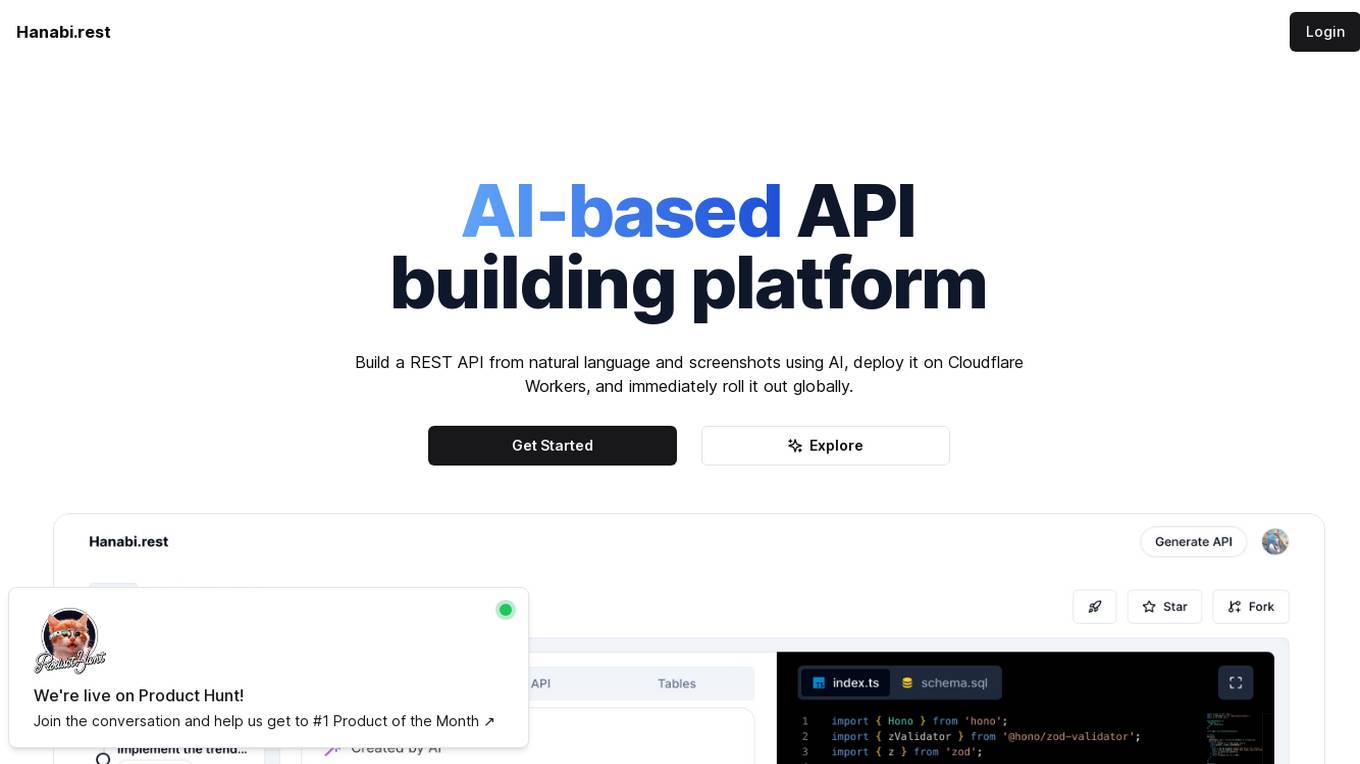
Hanabi.rest
Hanabi.rest is an AI-based API building platform that allows users to create REST APIs from natural language and screenshots using AI technology. Users can deploy the APIs on Cloudflare Workers and roll them out globally. The platform offers a live editor for testing database access and API endpoints, generates code compatible with various runtimes, and provides features like sharing APIs via URL, npm package integration, and CLI dump functionality. Hanabi.rest simplifies API design and deployment by leveraging natural language processing, image recognition, and v0.dev components.

Superflows
Superflows is a tool that allows you to add an AI Copilot to your SaaS product. This AI Copilot can answer questions and perform tasks for users via chat. It is designed to be easy to set up and configure, and it can be integrated into your codebase with just a few lines of code. Superflows is a great way to improve the user experience of your SaaS product and help users get the most out of your software.
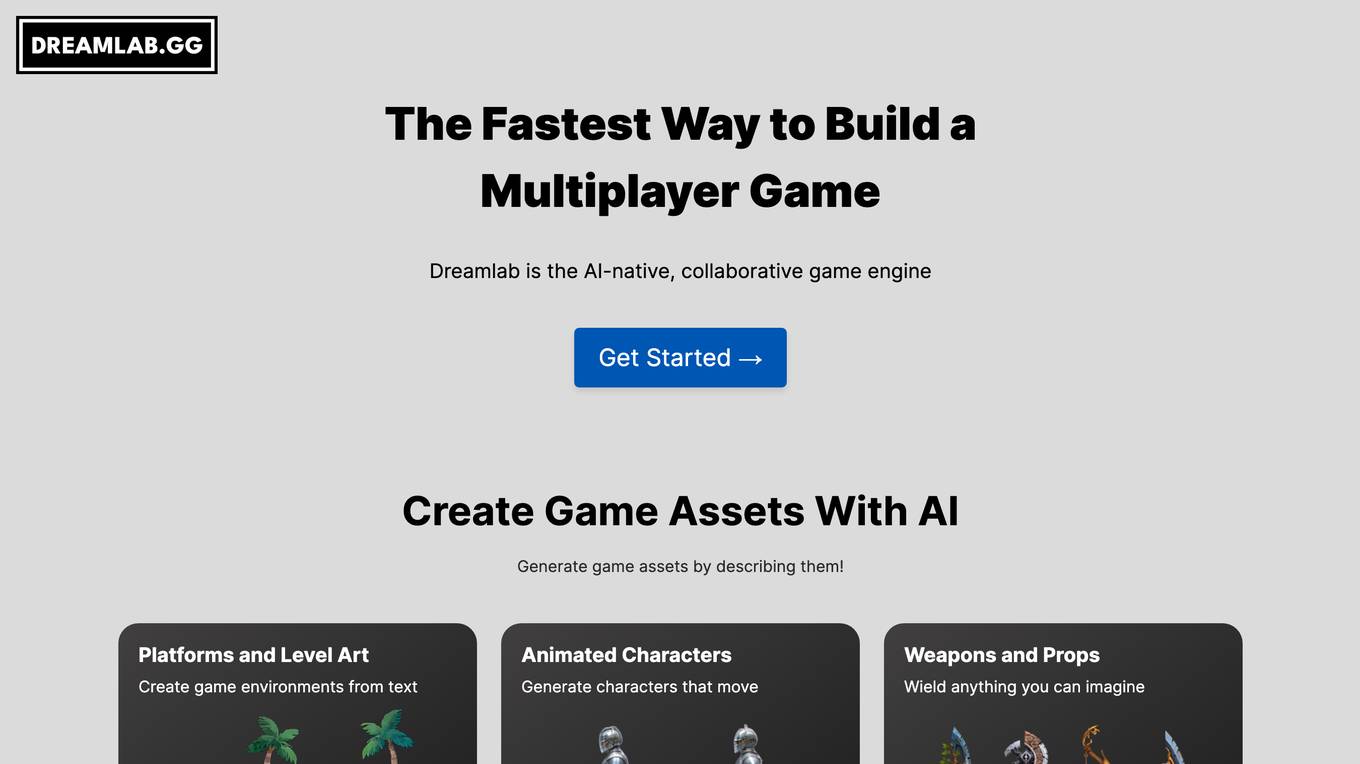
Dreamlab
Dreamlab is a multiplayer game creation platform that allows users to build and deploy great 2D multiplayer games quickly and effortlessly. It features an in-browser collaborative editor, easy integration of multiplayer functionality, and AI assistance for code generation. Dreamlab is designed for indie game developers, game jam participants, Discord server activities, and rapid prototyping. Users can start building their games instantly without the need for downloads or installations. The platform offers simple and transparent pricing with a free plan and a pro plan for serious game developers.
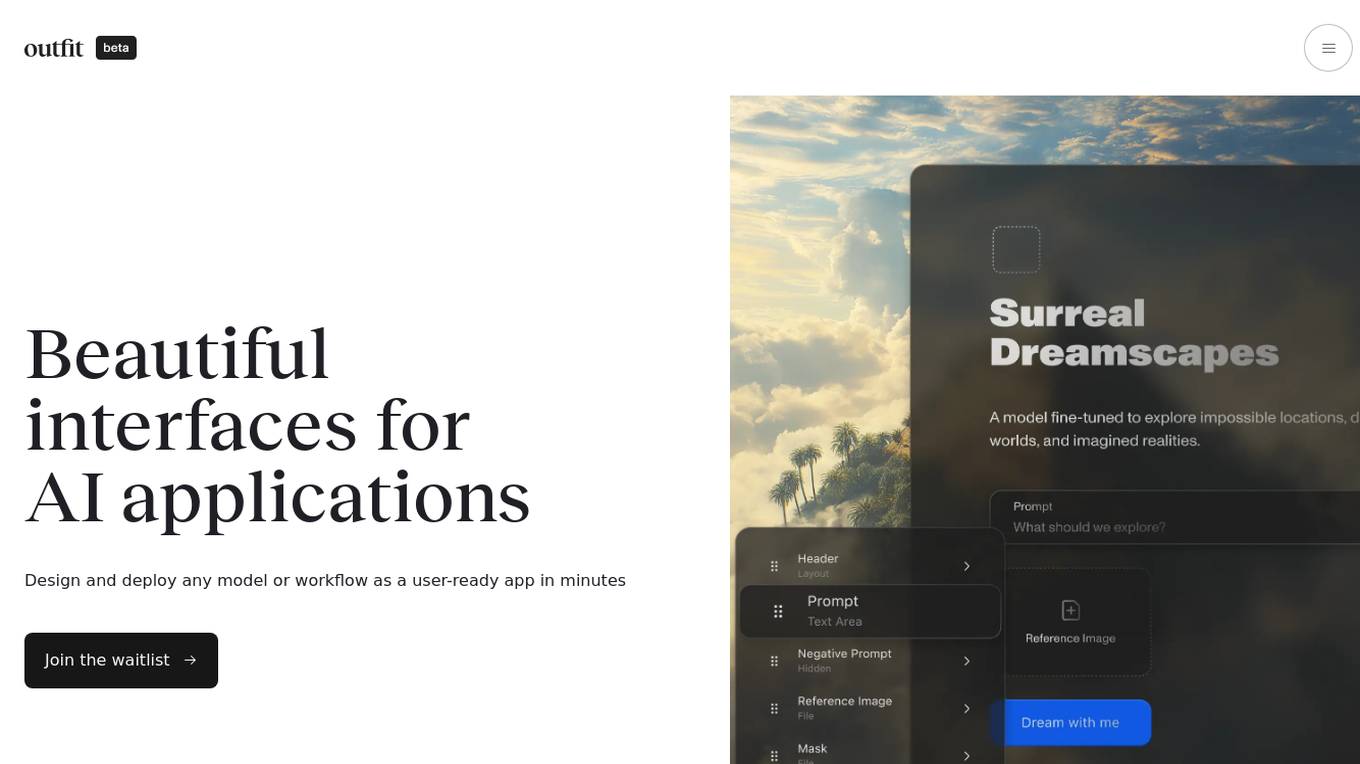
Outfit AI
Outfit AI is an AI tool that enables users to design and deploy AI models or workflows as user-ready applications in minutes. It allows users to create custom user interfaces for their AI-powered apps by dropping in an API key from Replicate or Hugging Face. With Outfit AI, users can have creative control over the design of their apps, build complex workflows without any code, and optimize prompts for better performance. The tool aims to help users launch their models faster, save time, and enhance their AI applications with a built-in product copilot.
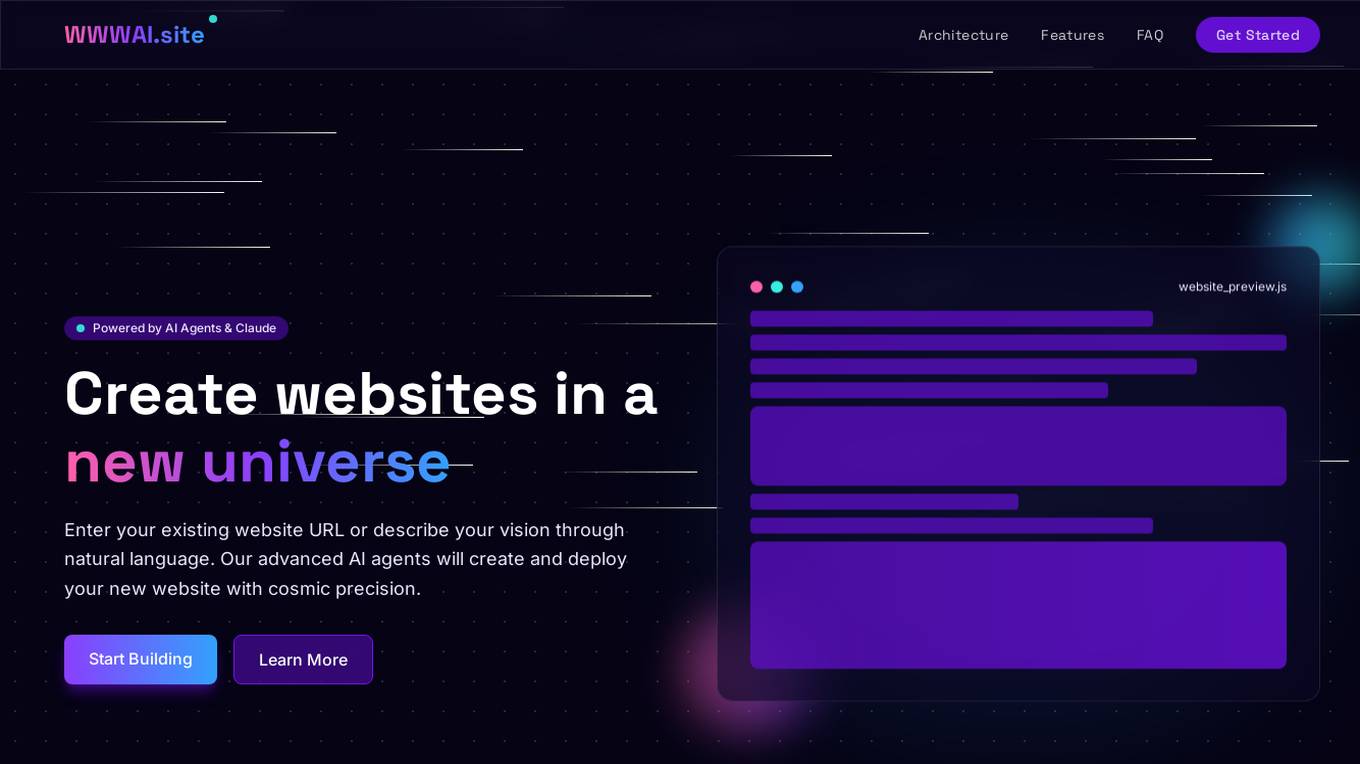
WWWAI.site
WWWAI.site is an AI-powered platform that revolutionizes web creation by allowing users to create and deploy websites using natural language input and advanced AI agents. The platform leverages specialized AI agents, such as Code Creation, Requirement Analysis, Concept Setting, and Error Validation, along with Claude API for language processing capabilities. Model Context Protocol (MCP) ensures consistency across all components, while users can choose between GitHub or CloudFlare for deployment. The platform is currently in beta testing with limited availability, offering users a seamless and innovative website creation experience.
1 - Open Source AI Tools
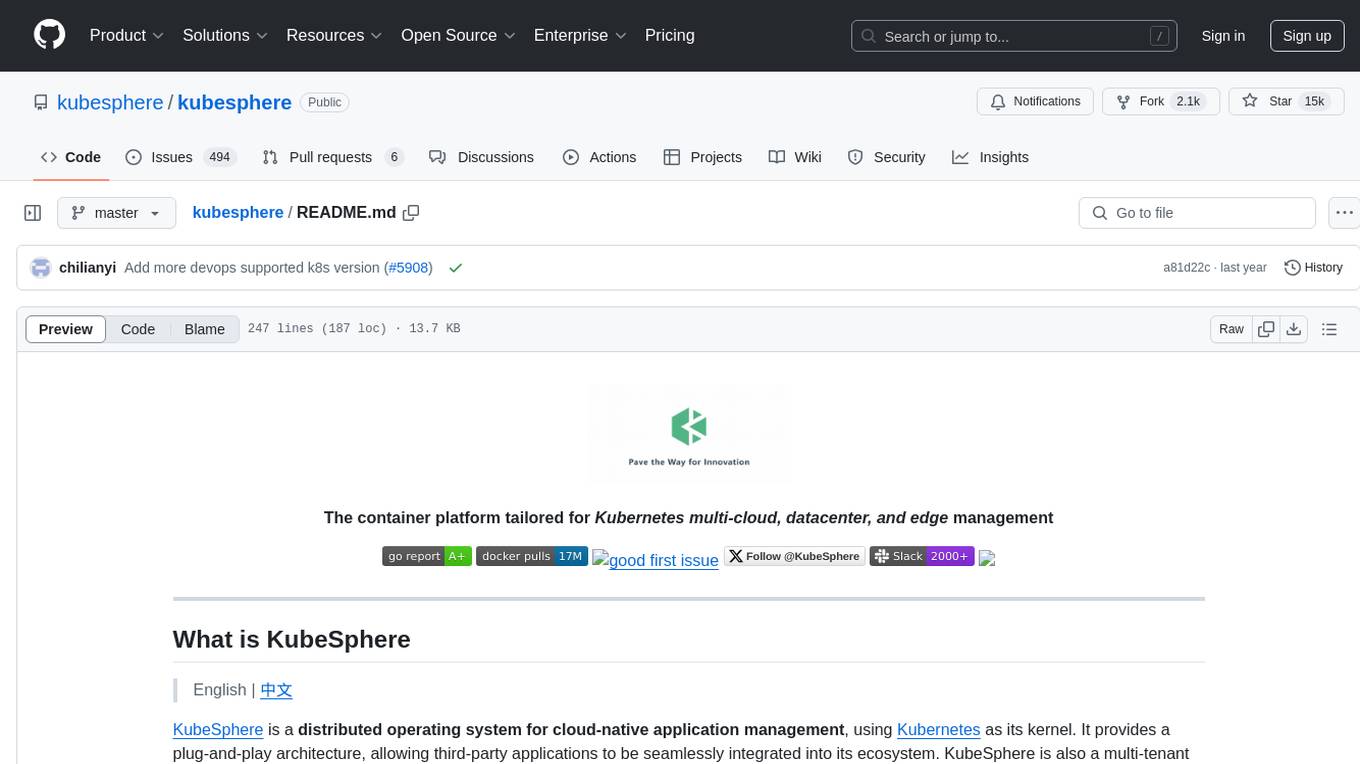
kubesphere
KubeSphere is a distributed operating system for cloud-native application management, using Kubernetes as its kernel. It provides a plug-and-play architecture, allowing third-party applications to be seamlessly integrated into its ecosystem. KubeSphere is also a multi-tenant container platform with full-stack automated IT operation and streamlined DevOps workflows. It provides developer-friendly wizard web UI, helping enterprises to build out a more robust and feature-rich platform, which includes most common functionalities needed for enterprise Kubernetes strategy.
20 - OpenAI Gpts
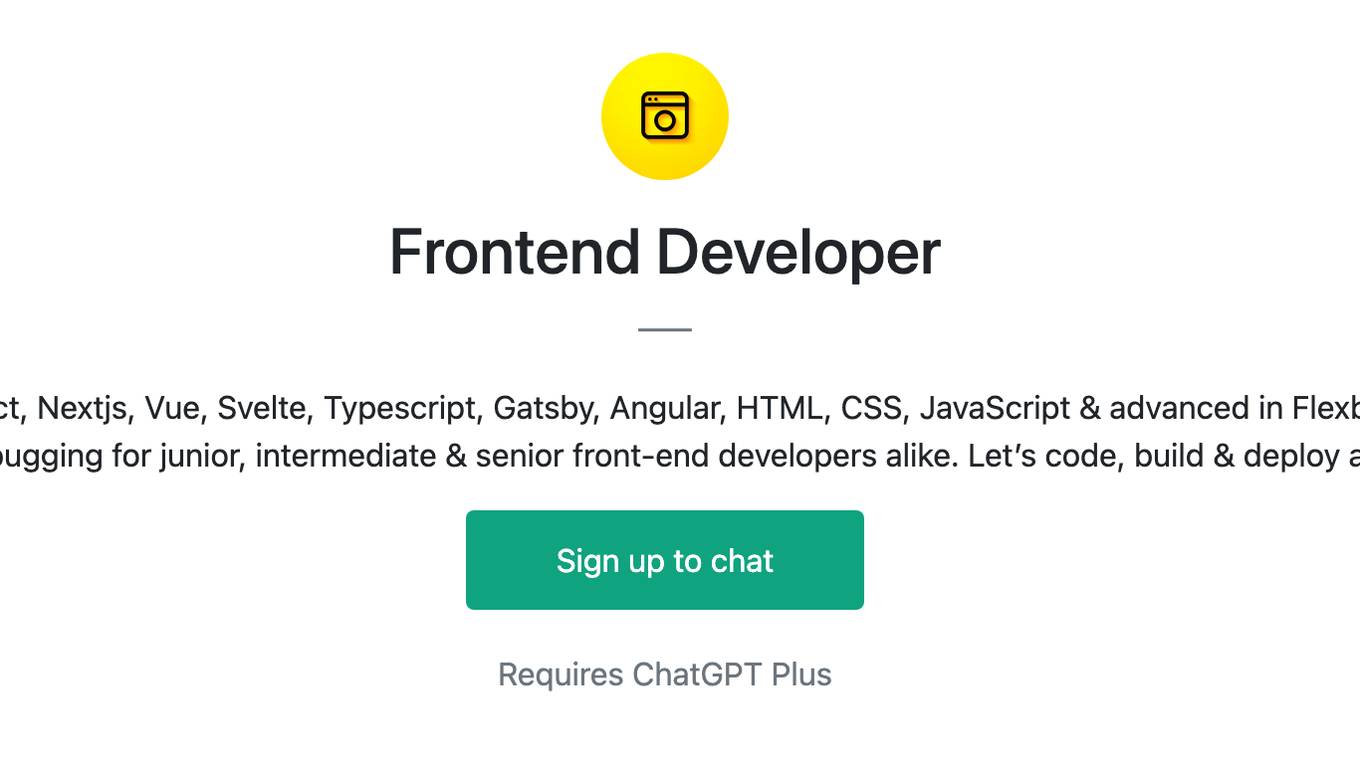
Frontend Developer
AI front-end developer expert in coding React, Nextjs, Vue, Svelte, Typescript, Gatsby, Angular, HTML, CSS, JavaScript & advanced in Flexbox, Tailwind & Material Design. Mentors in coding & debugging for junior, intermediate & senior front-end developers alike. Let’s code, build & deploy a SaaS app.
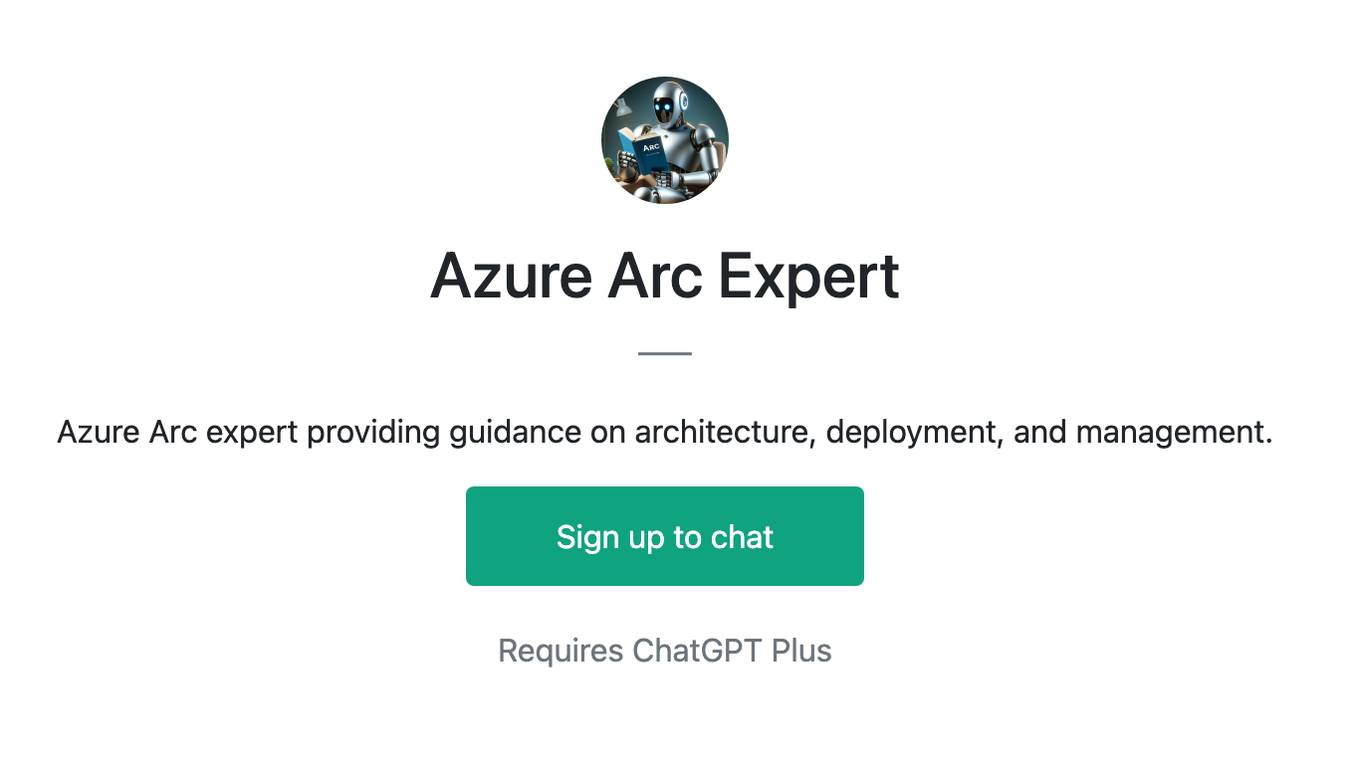
Azure Arc Expert
Azure Arc expert providing guidance on architecture, deployment, and management.

Instructor GCP ML
Formador para la certificación de ML Engineer en GCP, con respuestas y explicaciones detalladas.

Docker and Docker Swarm Assistant
Expert in Docker and Docker Swarm solutions and troubleshooting.

Cloudwise Consultant
Expert in cloud-native solutions, provides tailored tech advice and cost estimates.
